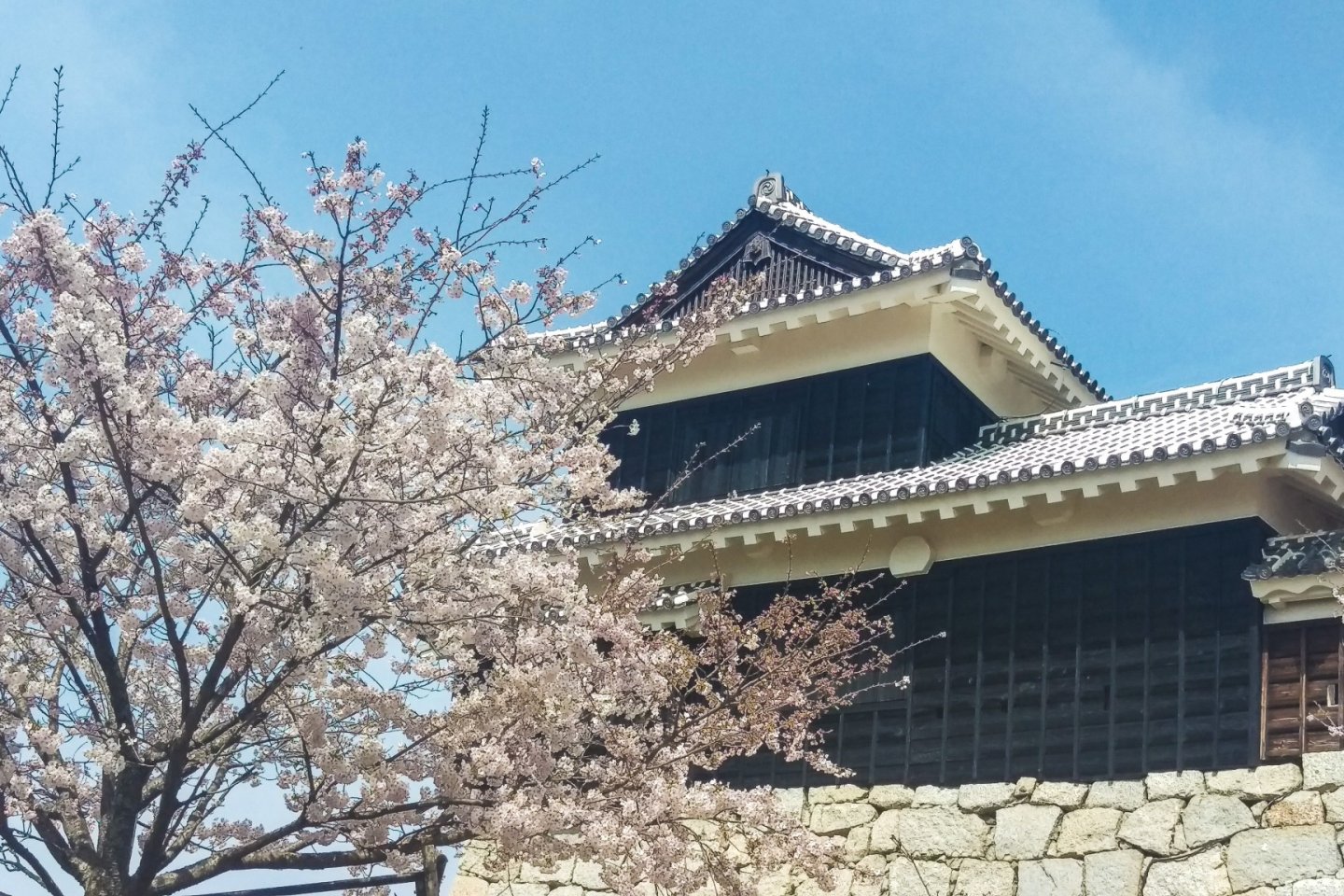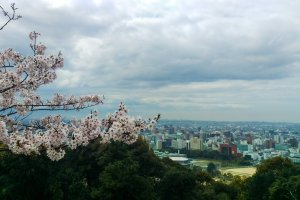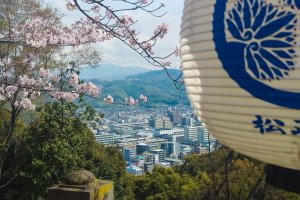Matsuyama Castle is located on a small hill at the center of Matsuyama City, and when illuminated in the evenings, sits as a kaleidoscopic beacon emerging between the pines. By day, the full scale of the complex is difficult to discern from Oshiroyama Park below, where only glimpses of the crescent tiles of the battlements are visible. The castle is one of twelve in Japan remaining from the feudal ages, and is well worth the short hike or ropeway ride to the summit.
Matsuyama Castle’s history was primarily as a defensive fortress, but it offers far more than just interest as a historical site. Admission to the main circle (honmaru) is free of charge, where in the humidity of summer there are pink, hazy panoramas of the city below, and soft gradated mountains visible to the north. A little further out is the coastline and a speckling of islands on the Seto Inland Sea – Gogoshima and Kashima are particularly pleasant and well worth cycling around as a side trip. Matsuyama Castle grounds are also a favorite spot for cherry blossom viewing and are often host to amiable picnic parties with alcohol that are synonymous with the Hanamatsuri festival. Every March, the cherry blossoms on over 200 trees burst open and form a romantic frame to the main castle buildings. Because of its aesthetics, the castle is often visited by bridal parties and even the occasional cosplayer group. Sunset from this vantage point is also not to be missed.
For a chance to try on Samurai garb, hold a katana, and even better photo opportunities, it is worth getting a ticket to enter the castle itself. The castle is in good condition and relatively intact, and definitely one of the most impressive of the originals. Like many Japanese castles, Matsuyama had a history of shogun affiliation before the Meiji restoration. Many of the interiors are imprinted with the famous Tokugawa family crest (or Mon) of the three hollyhock leaves nestled inside a circle. The castle itself has undergone reconstruction several times as it has been subject to two fires as a result of lightning – one of the incidents actually occurring on New Year’s Day. Today of course, the castle and its superior carpentry can be enjoyed without concern, especially the distinctive and comforting aroma of sun soaked local beech and pine lumber, after which Matsuyama partly gets its name.
The castle is easy to access and there are three options available to travelers who wish to reach the summit. From Oshiroyama Park, the walk to the top usually takes about fifteen minutes. The ropeway and cable car are slightly gentler options and offer a relaxing opportunity to observe the city. In good weather the chair lift departs continuously from 9am-5pm (until 4.30pm in December-January, and until 6pm in August) and the cable car every 10 minutes. Tickets for both of these can be purchased from the ropeway center, a 5 minute walk from the Okaido tram stop. There are several guides waiting and eager to help tourists as well. Tickets to enter the main buildings are 510 yen for adults. Admission and ropeway round-trip ticket costs 1,020 yen.
Matsuyama Castle isn’t as prominent as the gilded opulence of Osaka, but local people call it ‘’Oshiroyama” and cherishes it. As it is close to the Dogo Onsen, it is gaining popularity with travelers. Matsuyama and its castle present a slice of Japan that is a blend of genuine, unaffected history and abundant, natural beauty – combined with the excitement and opportunities of a lively city.


































